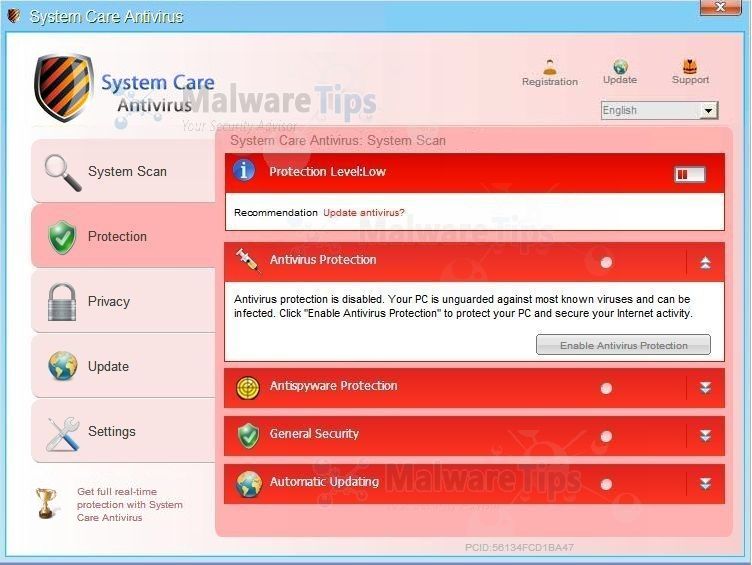Virus Removal and Cleanup
Computer Acting Strangely?
Possible Virus!

An Example of a Virus that says it’s an antivirus.
If you are getting pop-up ads, notices from “Microsoft”, uninvited Anti-Virus tools telling you have viruses, or even browser redirection to sites you don’t want to see, it’s most likely that your computer has contracted a virus. You should give us a call and set up an appointment for a Virus Removal and Cleanup.
We have a very specific regimen of action to eliminate these kinds of invading and unwanted programs. Whether it’s adware, spyware, bloatware, malware, trojan viruses or just potentially unwanted programs (PUP’s), they can all lead to possible further infection and should be dealt with as soon as possible.
Where do these viruses come from?
You can contract a computer virus from several different sources.
Virus Infected Websites – Any website can be infected and run scripts in the background which allow Malware to take root. It does not matter how popular or well-known the website is. For example even websites like MSN.com have been affected by attacks. Many times these unseen intruders install keyloggers to capture your usernames and passwords and report them back to the originator of the virus. Some viruses are meant to give attackers unfettered remote access to your computer when you are not looking.
Infected Downloads – Sometimes folks are looking for a program to perform a specific task like Viewing Files that they can not seem to open. Sometimes computer users seek out a downloadable file that says it’s one thing, but when opened, it immediately begins spreading itself around to infect your computer. In such a case as this where you can see abnormal behavior, it’s best to shut down your computer and call for help. Once a malware executable file has been given access to your computer by YOU (the administrator), it’s like opening the front door and telling them they can do anything they want. Many anti-virus programs will not even notice what’s going in your computer because you let the virus into your computer with your permission and user credentials.
Email Infections – Similar to infected file downloads, emails can contain infected email attachments which when opened immediately begin to spread. Sometimes your antivirus will catch them…sometimes it’s won’t. It’s best practice to avoid opening any email that you do not recognize. This also includes what we call Phishing Attacks.
Phishing Attack – A Phishing attack usually occurs in an email that “LOOKS” like it is coming from one of your regular billing companies or something you are familiar with seeing in your email. Something like Paypal or Amazon. The email will look like it’s going to take you to your account to straighten something out but if you follow the link it will take you to a domain or “web address” that does not belong to the actual provider. Always look at the URL, Domain, Web address in your browser before you go answering questions about your account.
Software Installation – Some viruses can come from software that you download and install. Whenever you download and install a new program (even if you trust it) ALWAYS choose the Custom Installation option if available, and always review if there are any bundled software programs included in the install. You may have to uncheck some checkboxes to tell those programs not to install. Also you may need to push a button that says “I disagree” regarding the licensing and installation of software other than the main program which you are seeking to install.
If you get in a pinch and you missed one of these precautions, it’s easy to end up with a virus. Give us a call to set an appointment to get that virus removed and shut down your computer as soon as possible. Lastly, if possible take some pictures of your infected screen before you shut it down so we can see the errors or infections that you encountered. This will lead to a more speedy diagnosis and possibly save you money on the cleanup and virus removal.